Homemade Ricotta Cheese (4-Ingredients How to Make)
This post may contain affiliate links. Please read my disclosure policy.
Ricotta Cheese is easy enough to make in your own kitchen! It’s tangy, salty, creamy, and sweet. What more could you want? Learn how to make ricotta cheese with just a few ingredients in less than 40 minutes with this easy ricotta recipe!
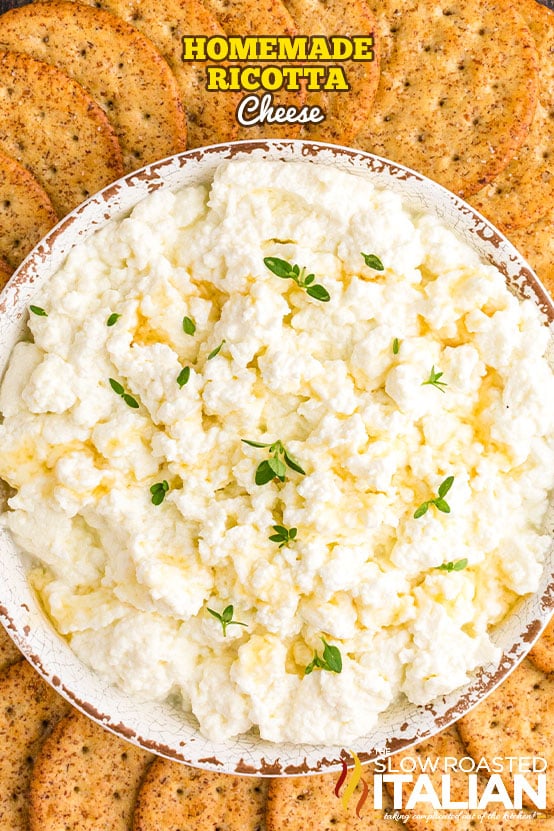
When most people hear the word ricotta, they automatically assume that they have to head to the grocery store to buy good ricotta cheese. But that’s no longer the truth!
In a short amount of time, you’ll be able to make your own creamy homemade ricotta cheese to serve with fresh fruit, or to add to other savory dishes.
This recipe for fresh cheese makes the perfect authentic ricotta cheese and is one of the best recipes out there!
If you want to elevate your Italian dishes, or just take your skills to the next level, give this creamy ricotta cheese recipe a try!
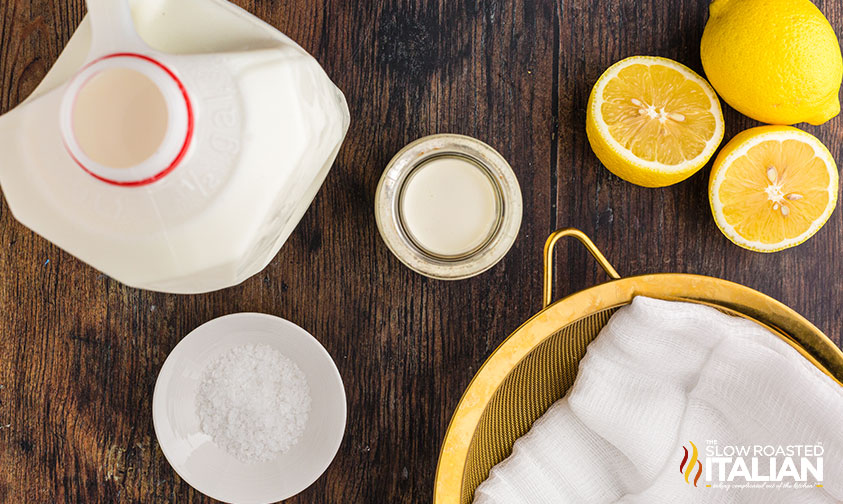
Table of Contents
Ricotta Cheese
When it comes to making cheese, all you really hear about is the aging process and the exact science of it.
Rest assured that this ricotta cheese recipe is incredibly easy and takes just over 30 minutes!
It’s really all about keeping an eye on the milk and making sure it doesn’t burn — overheating will ruin the batch in a heartbeat.
But other than that, you can make small changes to the milk, add-ins, and drainage time and still end up with a perfectly executed homemade ricotta!
Use it in Ziti al Forno or my Italian Calzone Recipe. You can even make sweet treats with ricotta cheese like lemon glazed cookies or pancakes with banana-pecan syrup!
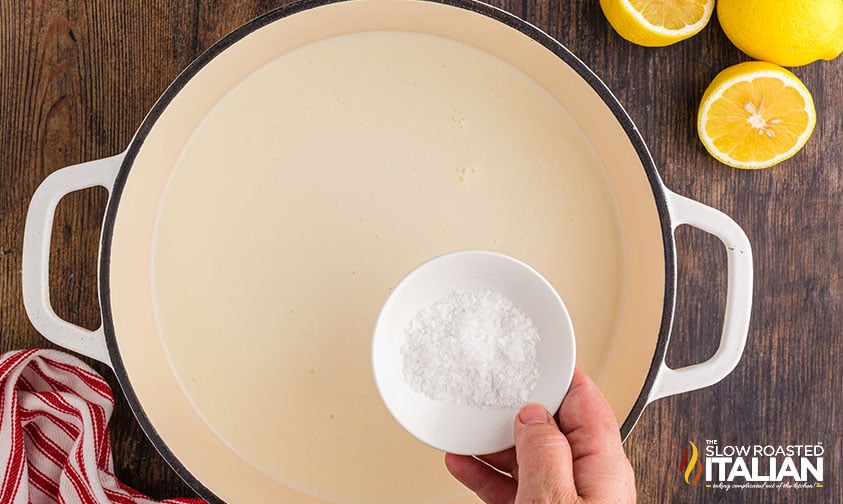
Ingredient Notes and Substitutions
- Whole Milk – Don’t use ultra-pasteurized, please! It just won’t work. Any milk you can find at the grocery store is absolutely fine to use otherwise.
- Heavy Cream – Cream is optional, but I like to recommend it for extra creaminess — and who doesn’t want that??
You can leave it out of the ricotta recipe with no changes to the instructions. - Flaky Sea Salt – Kosher salt works well, too. Really any large-grained salt is perfect for making homemade ricotta!
- Lemon Juice – Eureka or Lisbon lemons are my two top choices. They aren’t too sweet, like Meyer lemons, and are easy to find.
The exact amount of lemon juice you’ll need is never quite the same — you may need to stir in an additional 2 or 3 tablespoons if the milk doesn’t separate right away, so squeeze out a little extra!
Vinegar is a suitable substitute, but makes a difference in the flavor — your ricotta cheese will taste like vinegar, not lemon.
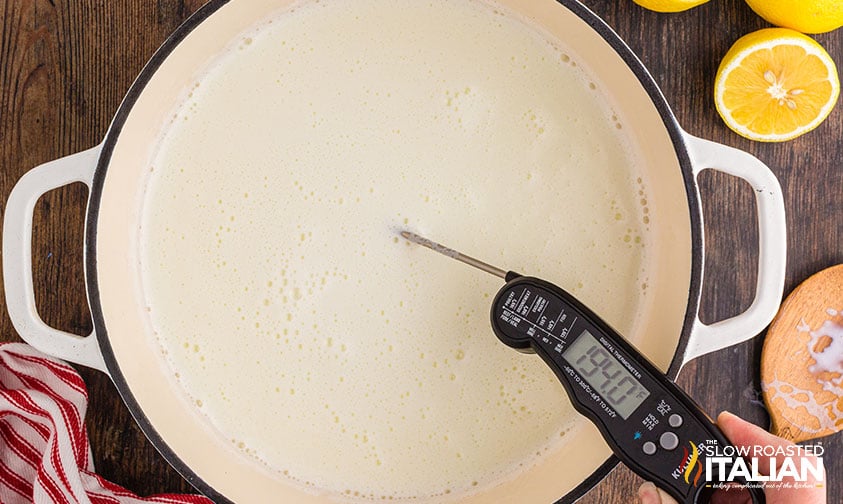
How to Make Ricotta Cheese
- Prepare the milk and cream.
Add the milk and heavy cream to a Dutch oven and cook on medium heat. Stir continuously until the temperature falls somewhere between 185°F and 195°F.
The amount of salt that you use is really up to you, but I recommend going with ½ teaspoon the first time you try it — you can always season later!
Don’t allow the mixture to overheat. The milk will become foamy, but should never hit a rolling boil.
- Add the lemon juice.
Once warm enough, stir in the lemon juice. It’ll curdle right away.
Turn off the heat and let the mixture sit for 10 to 15 minutes as the curds separate from the liquid.
- Drain thoroughly.
Transfer the curds to your prepared sieve and let your cheese drain for at least a few minutes and up to 45 minutes.
The longer it drains, the thicker it will be!
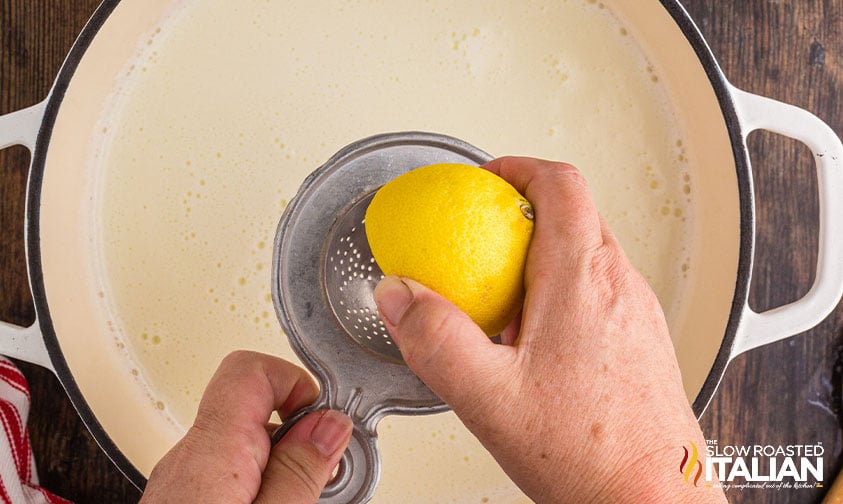
Storing and Cooking With Fresh Ricotta Cheese
Homemade ricotta lasts for up to 4 days in the fridge. Do not freeze — it has too much moisture and its texture will change dramatically if frozen.
You can also use it right away! Keep in mind that ricotta cheese isn’t the same as most cheeses.
It does not melt, but rather bakes and turns even creamier with a quick roasting.
It can sometimes be hard to tell when a fresh, creamy cheese has gone bad. Some tell-tale signs are a yellow or orangeish color and a sour smell or taste.
Kitchen Tools You Will Need
- Use a sieve or strainer and several layers of cheesecloth to drain your ricotta cheese.
- Slotted Spoon – For transferring all of the cheese curds once they’re finished cooking.
- Candy Thermometer – Make sure all of your hard work doesn’t go to waste! Keep an eye on the temperature so that the cream doesn’t burn.
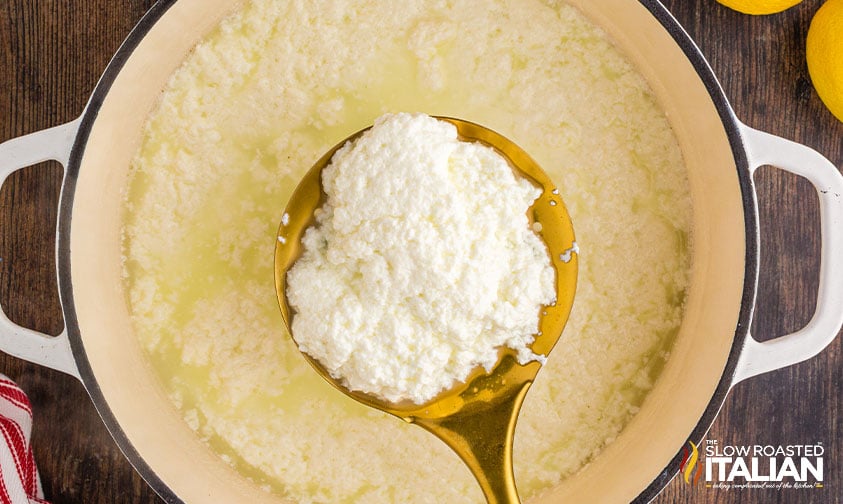
Ways to Use Homemade Ricotta
You can use fresh ricotta in the simplest ways — a sprinkling on top of pizza just before baking or on a fresh salad are two of my favorites.
This easy ricotta cheese recipe is absolutely heavenly in savory pasta dishes!
Stuffed shells, tortellini (which is different!), ravioli (which is also different), and lasagna are the first recipes that come to mind, but I can’t really think of a pasta that isn’t made better with some of this creamy cheese.
Then, there’s the sweetest way you can use fresh ricotta — cannolis! In fact, we make just enough in this ricotta recipe for my traditional cannoli filling.
But honestly? Scoop it onto a plate, add some fresh thyme and a drizzle of olive oil, and serve with blackberries and crackers. Fresh and delicious!
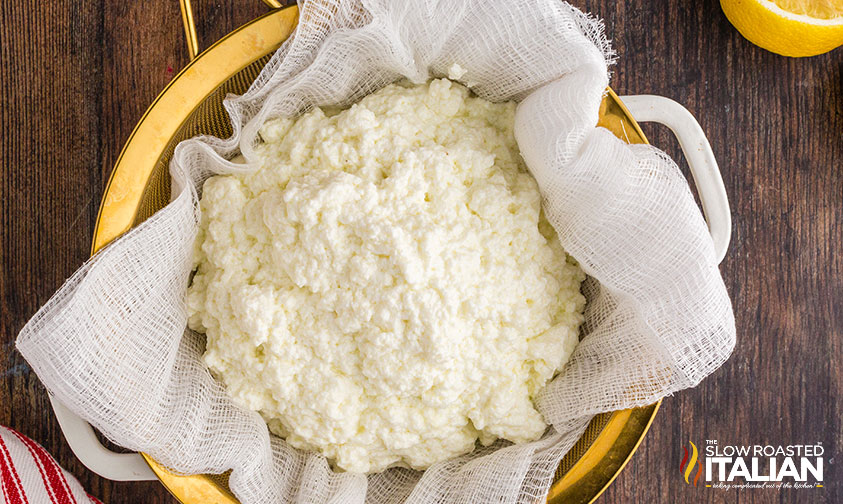
Ricotta Cheese Recipe FAQ
Texture! Freshly made ricotta is lighter and creamier than the kind that’s been packed into tubs. It also has a brighter flavor and is all-around more satisfying.
Once you learn how to make ricotta cheese, you’ll never want to go back to the store-bought tubs again!
Ricotta can also be aged, transforming it from a soft, spreadable consistency to a firmer block known as ricotta salata.
The flavor is similar to feta, but the drier, firmer texture requires it to be grated rather than crumbled.
Your closest match, regardless of the circumstances, is cottage cheese. It’s mild, moist, and very fresh in flavor!
Mascarpone can work as well, depending on what exactly you’re using it for — it’s fattier and creamier, making any dish heavier than ricotta would.
Cheeses such as goat cheese, feta, and cream cheese should only be used as a substitute when you’re going for thickness, tanginess, and creaminess. These are also your go-to’s when working with meats!
Alternatively, sour cream, buttermilk, and Greek yogurt are best when you’re trying to replace ricotta in cookies, cakes, and icings!
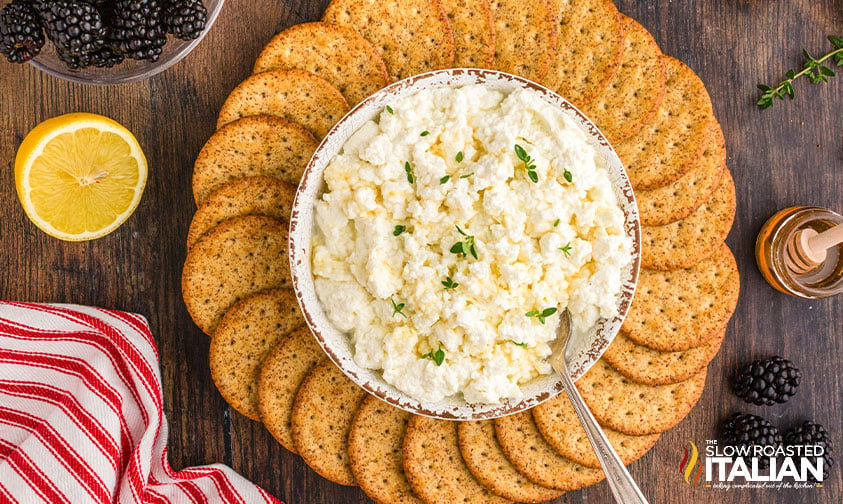
Enjoy!
With love, from our simple kitchen to yours.
Don’t miss a thing! Follow us on
Facebook | Twitter | Pinterest | Instagram
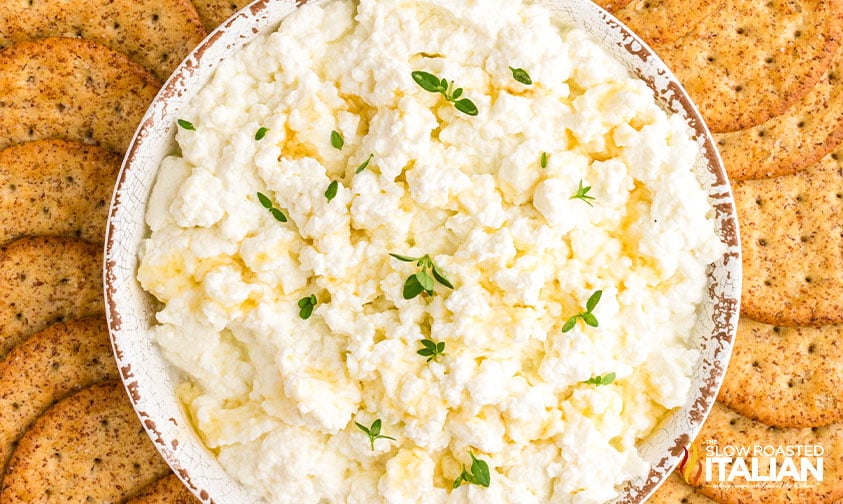
Recipes With Ricotta Cheese
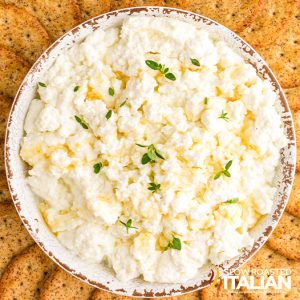
Homemade Ricotta Cheese (4-Ingredients How to Make)
Ingredients
- 1/2 gallon whole milk, NOT ultra-pasturized
- 1 cup heavy cream
- 1/2-1 teaspoon flaky sea salt or kosher salt
- 3 tablespoons lemon juice
Instructions
- Pour milk and cream into a heavy stockpot or Dutch oven. Add salt to the milk mixture.
- Heat over medium heat, stirring frequently to prevent the milk from scorching on the bottom of the pan.
- Heat until the temperature of the milk registers between 185°F and 195°F. At this temperature, the milk will be slightly foamy on the top, but not boiling.
- Add lemon juice to the milk mixture and stir. You should see the milk curdling almost immediately. Turn off the heat when the mixture starts to separate and leave it to sit for about 10-15 minutes.
- Line a strainer or sieve with several layers of cheesecloth for draining the ricotta.
- Use a slotted spoon to lift the cheese curds from the whey and transfer to the cheesecloth-lined strainer. Allow the ricotta to drain for as long as you wish – the longer it drains, the thicker it will be. You can drain it for just a few minutes for a creamy ricotta or up to 45 minutes for a thicker ricotta.
- Transfer ricotta to an airtight container and refrigerate or serve immediately.
- Store in an airtight container in the refrigerator for 3-4 days.
Donna’s Notes
Nutrition
All nutritional information is based on third party calculations and is only an estimate. Each recipe’s nutritional value will vary depending on the ingredients used, measuring methods, and portion sizes.
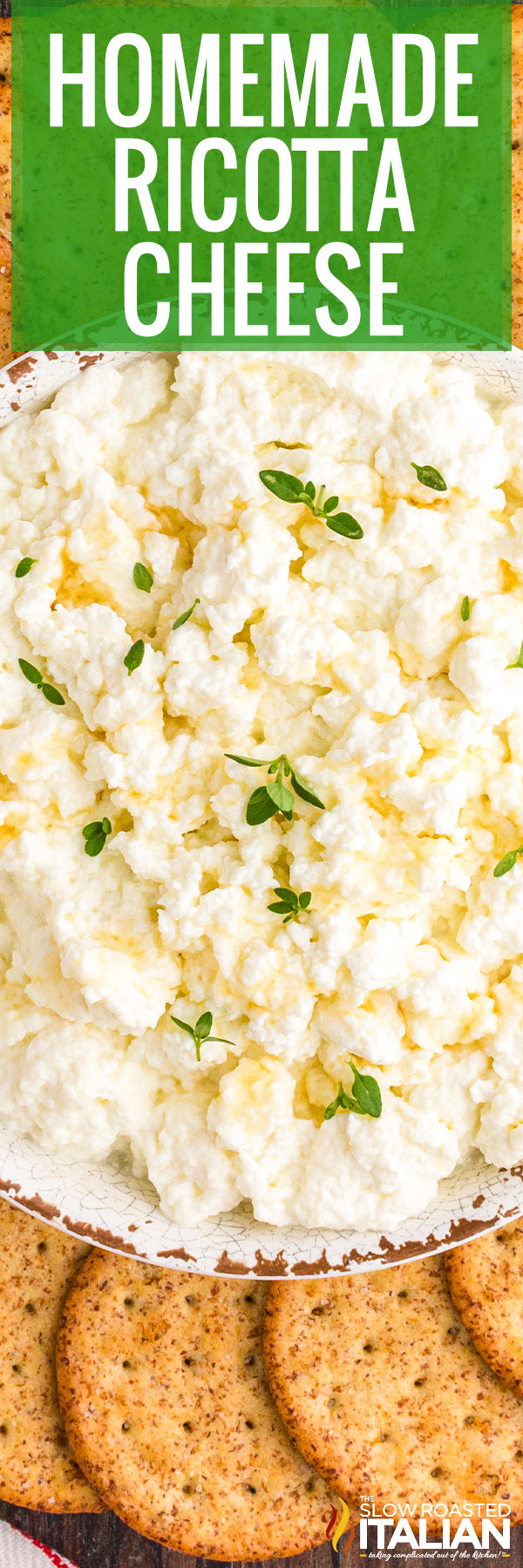
Originally published October 2022, updated and republished November 2024
Disclosure: Posts may contain affiliate links. If you purchase a product through an affiliate link your price will remain the same and The Slow Roasted Italian will automatically receive a small commission. Thank you for supporting us, it helps us keep creating new recipes.



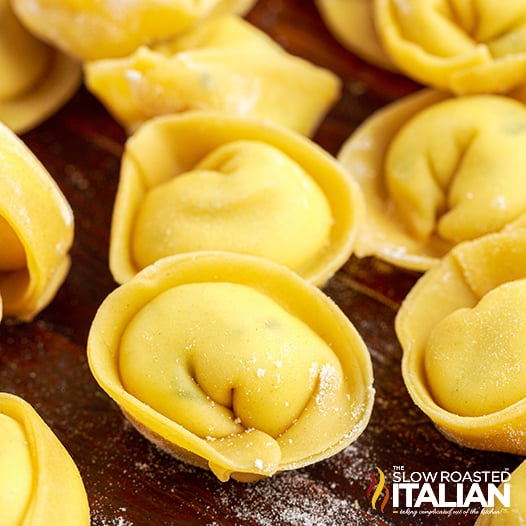

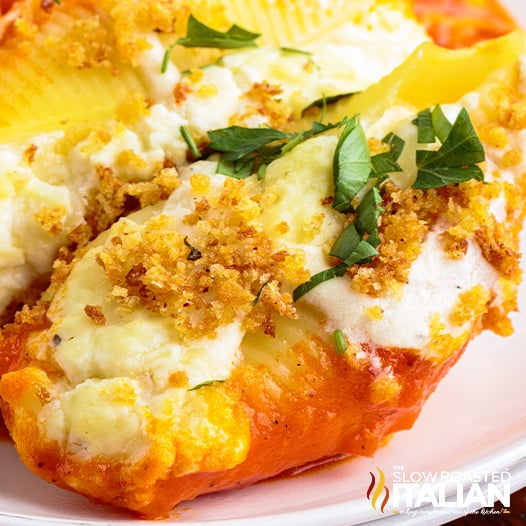
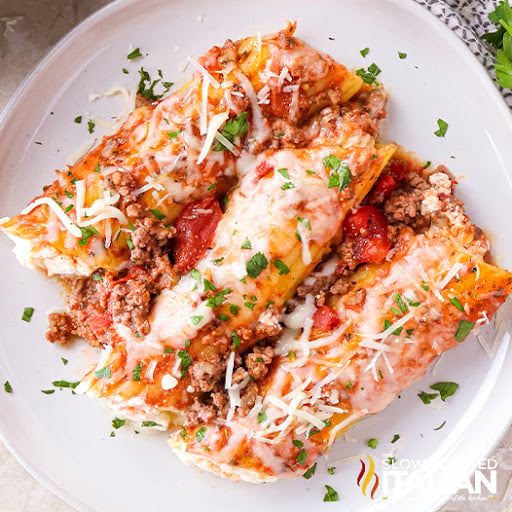

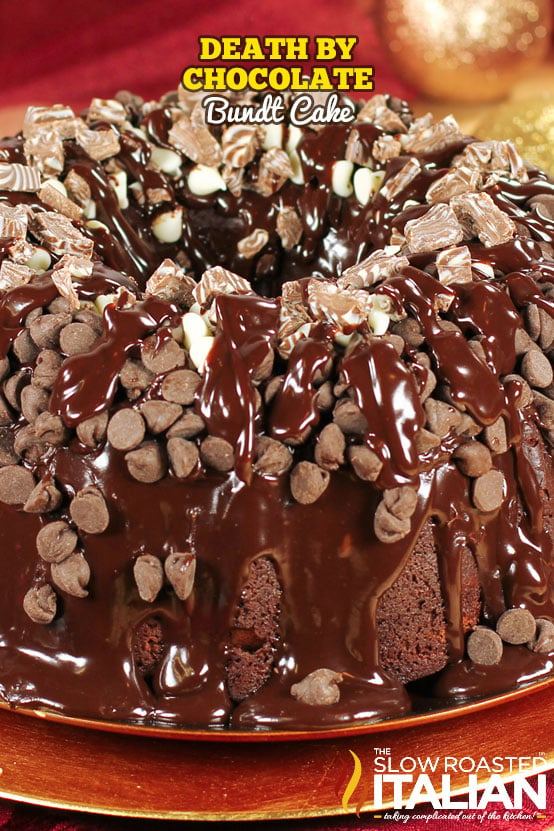
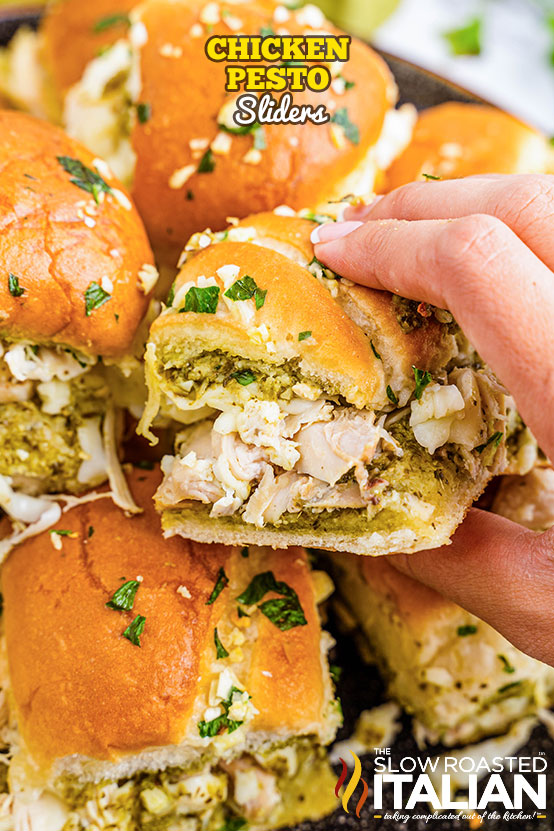
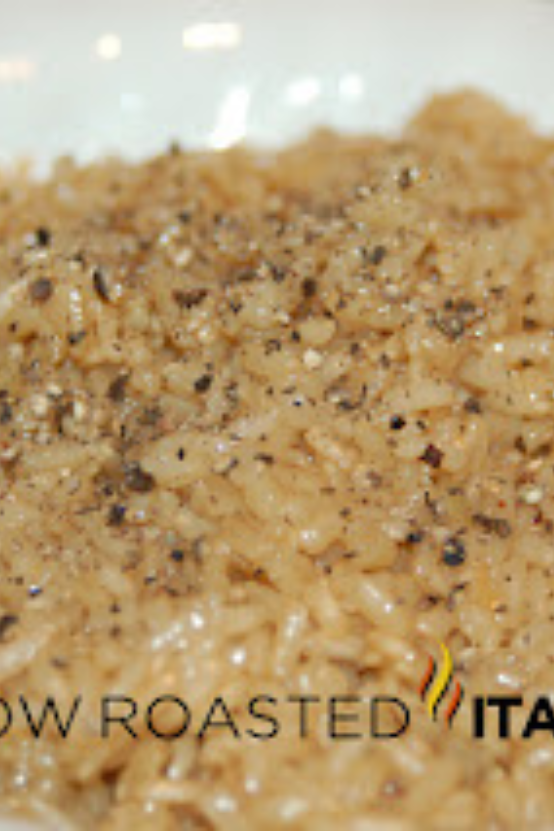
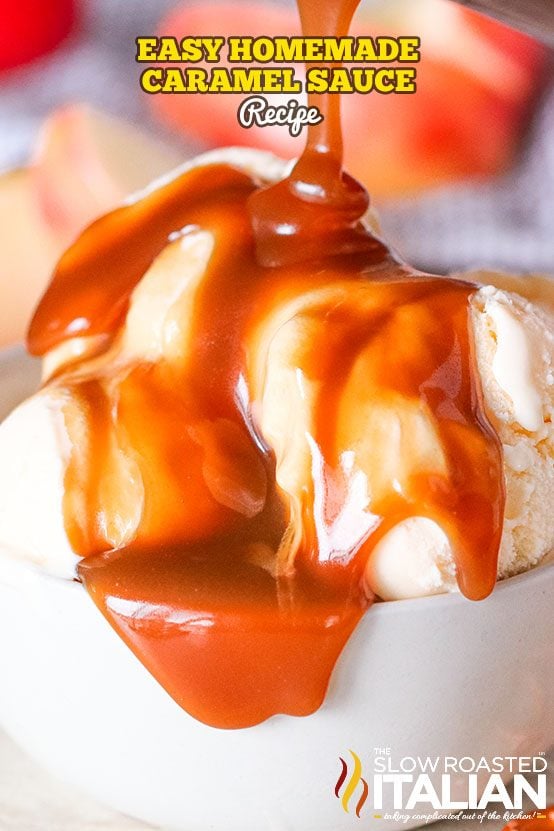
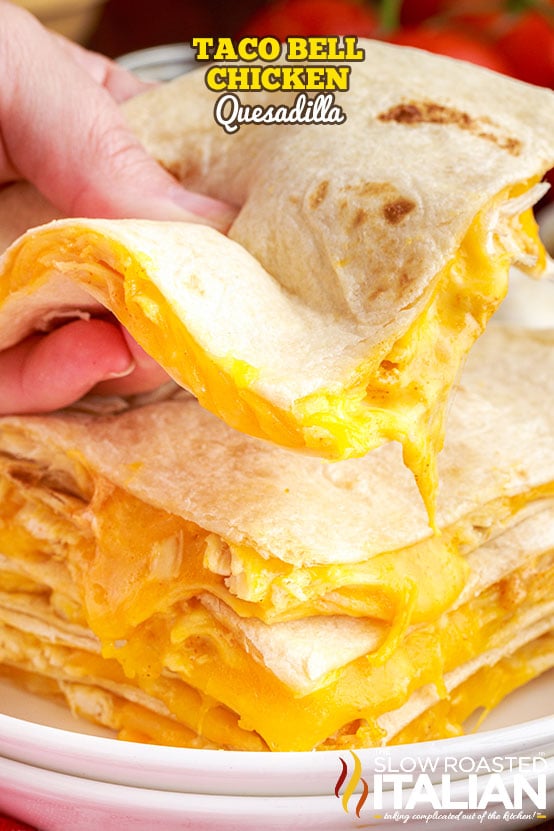
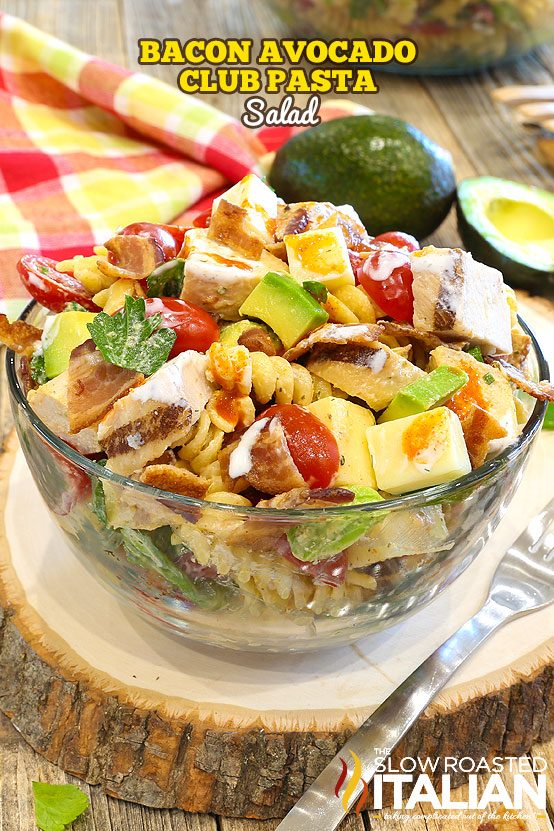






This is so easy! Made this just a little while ago so I can make your easy lasagna today. I had no idea it was so easy to make. No more trips to the store for ricotta. This is such an easy recipe to follow!
This was so easy and delicious. I’m making pasta dough and eating the rest. Thank you for this awesome recipe.
Hi Friend!
We’re so glad that you enjoyed!
TSRI Team Member,
Devlyn